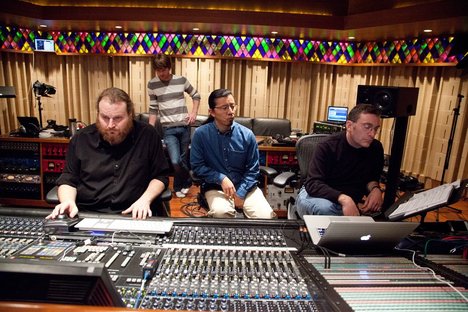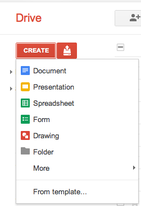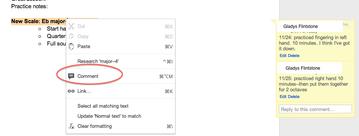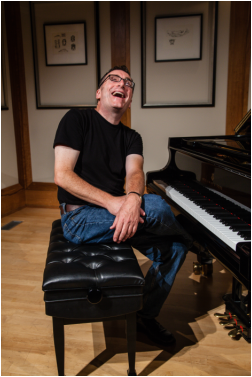|
In the recording studio, I’ve always relied on a producer to be my extra set of ears and coach--listening to my playing as it sounds to the microphone and giving me objective feedback, encouragement and challenge. Since recording is a process I greatly enjoy, I also like being in the role of producer to help artists realize their vision in the studio. Recently, I had the privilege and pleasure of working in the studio as producer for pianist Frederic Chiu. Frederic is a consummate artist--not only a virtuoso pianist, but a visionary who thinks about and hears music on a profound level. When Frederic first told me about this project, I was captivated by his vision. It was soon apparent to me how and where this recording should take place. Manifold Recording studio is wonderfully aligned with Frederic’s vision for “Hymns and Dervishes.” One interesting aspect of these sessions was the fact that they were streamed live online for fans, friends, and colleagues to experience the recording process and be introduced to this unique music. Manifold owner Michael Tiemann created an optimal Ustream setup, switching cameras between Frederic at the piano in the studio room, to the control room where we listened to the recorded takes. The streams are archived here -- you can view them on YouTube and see what was broadcast during the sessions. During breaks, Frederic was even able to respond to some viewer questions and comments during the two days the stream was live. The opportunity to perform or to teach live online is growing daily. Whether a glimpse into a world-class recording studio/session, taking music lessons online or hearing a concert, live music is happening within our grasp constantly. Have you had experiences performing or teaching live online? Please share! Pianist, recording artist, educator and entrepreneur—Philip Amalong is VP of Community and Content of the ZOEN (Zenph Online Education Network).
0 Comments
If you’re like me, in a traditional lesson you or your student write in a physical notebook to spell out the assignment and items of focus for the practice period before the next lesson. With an online lesson, you won’t have this physical notebook. I recommend using Google Docs. Google docs are a great tool for keeping a running notebook for your students. The historical record of your notes, assessment of the lesson and outline of practice goals is always available for reference and progress tracking, and the student can add their practice log and notes to the doc, creating a running journal.
Basics of Google Docs 1. Select Drive at the top of your Google menu: 2. Create>Document This will make an untitled document that you can name by student and time period (e.g. July 2012) or initiative (Solo and Ensemble Preparation) in the document list: 3. You can create a folder (Create>Folder) for each of your students and keep their running document or a series of documents in the folder. 4. Share the document with your student: the blue Share button at the top right of the page allows you to enter a student or student’s parent email address to share the document. Only you and those with whom you share the document will see it. 5. The student can keep a simple practice journal by adding notes with with the Comment feature (similar to Microsoft Word).
Google Drive contains free tools that facilitate communication and collaboration between lessons. You may find many creative ways to use the different tools beyond the docs. Have some cool things you’ve done with Google Drive? Please share and add your comments below! Pianist, recording artist, educator and entrepreneur—Philip Amalong is VP of Community and Content for the ZOEN (Zenph Online Education Network).
Call of Duty Black Ops II composer Jack Wall talks with The ZOEN Call of Duty Black Ops II is a juggernaut. Launched yesterday it is poised to be one of the biggest entertainment releases of all time. We sat down with renowned composer Jack Wall, talked with him about his career and the future of online education. Jack teaches online courses for Berklee College of Music and has experienced online learning himself. Jack's cred in video game music is legendary (Myst, Jade Empire, Mass Effect 2, etc.), and the competitive process for landing the scoring gig for Call of Duty Black Ops II presented an interesting challenge: "The first person I called when I got that opportunity was Phil! I had this whacky idea of doing a piano concerto—something really emotional, that could show some musicality, and I thought it was a really interesting and unique idea. And they loved it too—Phil did an amazing, amazing job...and I got the gig!" His thoughts on online learning and the ZOEN: "Everything is going through a Renaissance right now-- I’m very, very positive on what the ZOEN is doing---I really dig it. Especially the fact that you can actually play and hear each other [live] over the Internet—that’s a really revelation—that’s something Berklee doesn’t have. I think it’s the fast-track of learning, I don’t think there’s any wasted space, there's not any wasted time. You get right in there and you learn something really fast and you can just apply it immediately. It’s such an amazing experience." Full interview coming soon!! Check out "making of" video of the Call of Duty Black Ops II score, shot at Abbey Road Studio One in London: What do lawyers, ice cream shops, chiropractors, car dealers, candy stores, financial services professionals, insurance brokers, real estate agents, satellite radio, software applications and a host of other assorted products and services have in common? They all offer free trials, samples, or consultations. A session of their time for free (or many sessions in the case of a real estate agent,) a sample of the product, a test drive, an opportunity to experience the therapy... Music teacher's thoughts on this vary widely. Typically, their reasons for not offering free trial lessons are that the student is "window shopping" or that a free lesson "devalues" their lesson experience. Consider: Window shopping: The student may very well be looking for the teacher who is the best fit and sampling multiple teachers. From our perspective as teachers, we have a strong personal connection to our work and want students who we think are a good fit. Devalue Lessons?: If the teacher communicates their fees clearly upfront, the lesson value becomes evident in the free trial lesson, not devalued. "But my time is too valuable!" That's exactly the point. If you're a music teacher, consider that a twenty or thirty minute free session with a prospective student serves multiple purposes, while obligating neither party:
So think about it--you're worth it. If you want more students and a fulfilling teaching experience by teaching students who you want to teach, consider offering free samples. This is especially true if the delivery medium is unfamiliar and you're working in the still uncharted territory of live online webcam lessons. I'll bet the lawyers and chiropractors and finance people wish they had a relationship with their clients that allowed them to navigate a world of beauty and craft with the depth of music. Ask the next one that you have as a student. Also, ask them about the efficacy of free. What are your thoughts and experiences with trial lessons? Please share! About the Author: Pianist, recording artist, educator and entrepreneur—Philip Amalong is VP of Community and Content for the ZOEN (Zenph Online Education Network).
|
AuthorObserver of the world of music, performance, learning and technology. Performer, Producer, Recording Artist, VP Community and Content-Zenph Inc. Categories
All
Archives
January 2013
|
Philip Amalong | Pianist, Recording Artist, Educator, VP-The ZOEN







 RSS Feed
RSS Feed

